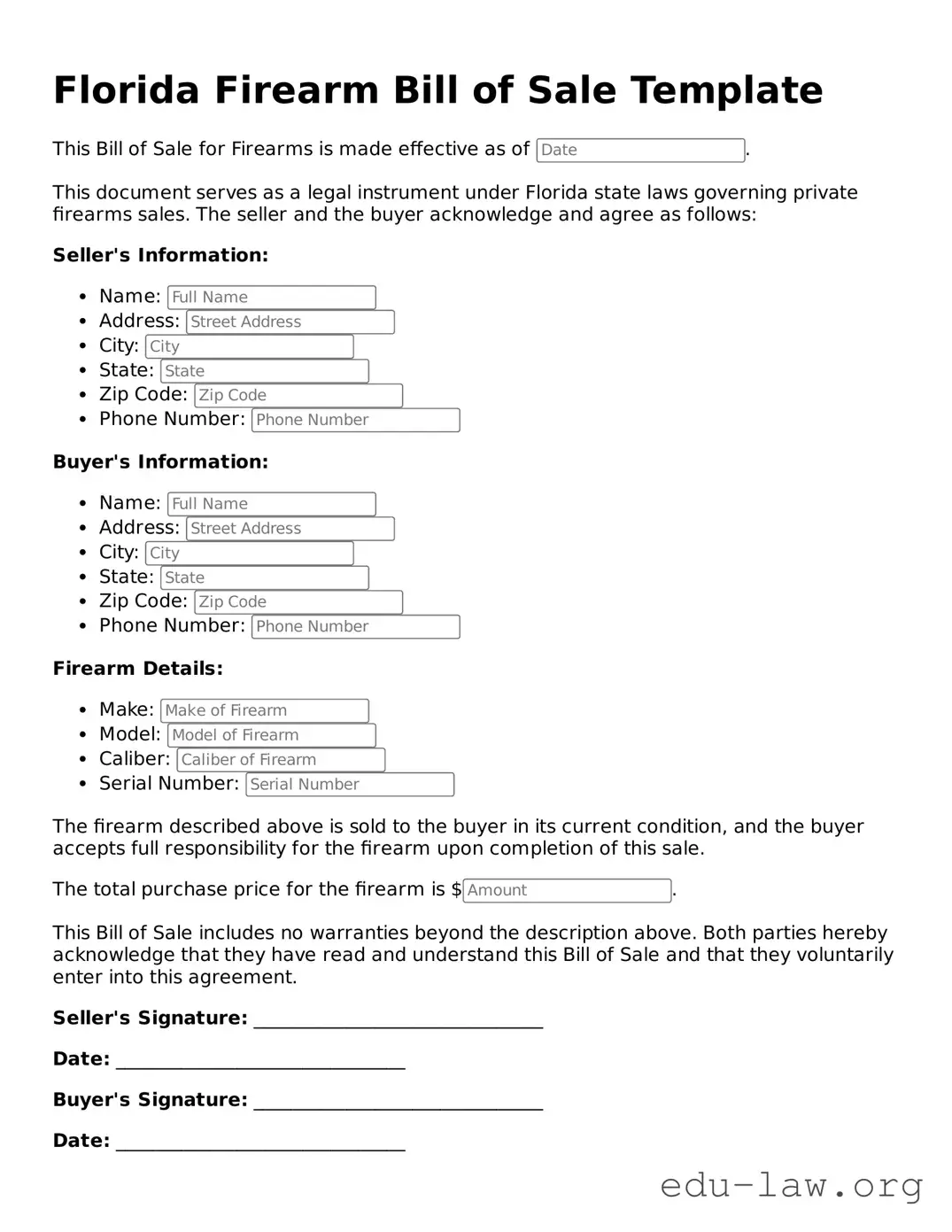What is a Florida Firearm Bill of Sale?
A Florida Firearm Bill of Sale is a document that acts as a record of a gun sale between a seller and a buyer. This form can help protect both parties by providing proof of the transaction. It includes details such as the firearm’s description, purchase price, and the names and addresses of the seller and buyer.
Is a Bill of Sale required for private gun sales in Florida?
While Florida law does not require a Bill of Sale for private sales of firearms, it is highly recommended. Having this document can serve as important proof that a sale took place, which can protect both the seller and the buyer in case of disputes or legal questions later on.
What information is typically included in the Bill of Sale?
A typical Florida Firearm Bill of Sale will include the following information: the names and addresses of both the seller and buyer, the date of the sale, a description of the firearm (including the make, model, and serial number), and the purchase price. Both parties may also sign the document to acknowledge the transaction.
Do I need a background check to complete a Bill of Sale?
In Florida, private sellers are not required to conduct a background check on the buyer before completing a sale. However, it is advisable to ensure that the buyer is legally allowed to own a firearm. This can help prevent complications in the future.
Can I use a generic Bill of Sale form for firearms?
Yes, you can use a generic Bill of Sale form, but it is best to use one specifically designed for firearm transactions. A tailored form will address the unique aspects of firearm sales, ensuring all necessary information is included and accurately recorded.
What happens if the firearm is used in a crime after the sale?
If a firearm is used in a crime after being sold, the Bill of Sale provides important documentation. It can show that the seller is no longer in possession of the firearm and can help demonstrate that the seller had no knowledge or involvement in the subsequent crime.
Can I create my own Bill of Sale, or do I need a specific form?
You can create your own Bill of Sale as long as it contains all the necessary information required by law. A well-formulated document can serve the same purpose as a pre-printed form and still protect both the seller and buyer in the transaction.
Where should I keep my Bill of Sale after the transaction?
Both the buyer and seller should keep a copy of the Bill of Sale for their records. It’s a good idea to store these documents in a safe place, as they may be needed for future reference or in case of legal issues regarding the firearm.
Is there an official or government agency involved in the Bill of Sale process?
No government agency is directly involved in the Bill of Sale process for private firearm sales in Florida. However, both parties should be aware of local laws regarding firearms and personal sales to ensure compliance with regulations.
